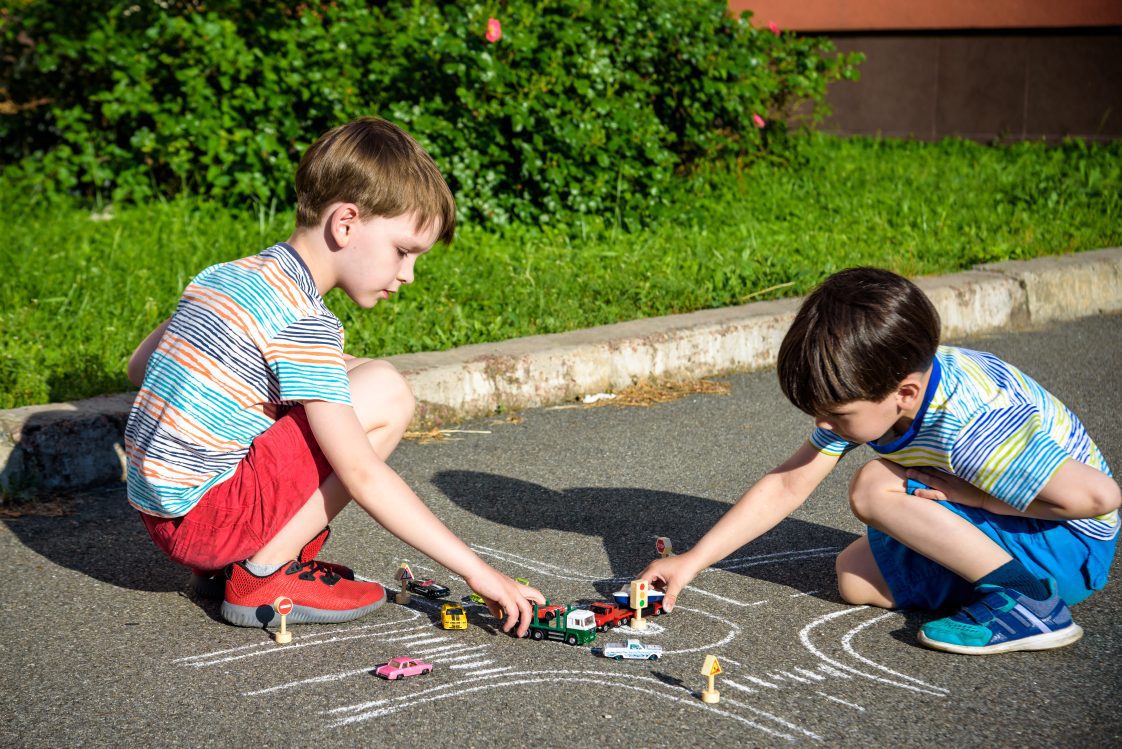Home & Family

This publication is the second in the early childhood development Let’s Play series. Child care providers and parents can learn to design spaces that promote play.
Universal design means that play spaces are accessible to children of all abilities. As an adult caregiver, you can help young children enjoy play for their best physical and social development. Here we focus on how adults can use universal design principles to encourage young children of all abilities to enjoy play.
What is UDL?
Universal Design for Learning is about creating everyday physical learning opportunities for all children. This inclusive approach involves design and guidance.
Adults play a role by helping enable unstructured (child-directed) play as well as structured, adult-led opportunities.
What Can Adults Do?
Adults can plan movement and activities while keeping each child’s strengths, weaknesses, needs, and interests in mind. Inclusive activities and movement should be in keeping with social expectations and consistent with local language and culture.
Why Is UDL Important?
 When children are in control of their bodies and use their imagination, they learn practical skills and tools, like how to make choices, that help them succeed in the world as they grow.
When children are in control of their bodies and use their imagination, they learn practical skills and tools, like how to make choices, that help them succeed in the world as they grow.
What Is the Outcome?
Children gain knowledge of the world around them. Play helps them connect basic skills to more advanced skills. As they play with others, they also learn important social skills. They become comfortable in the natural environment.
Adult Roles
- Narrator. Introduces and reinforces the child’s movement vocabulary.
- Responder. Acknowledges the child’s abilities and intelligence.
- Extender. Adds to play by asking questions or providing props to build connections to previous learning.
- Supporter. Specifically acknowledges a child’s persistence and achievement, especially in a problem-solving scenario.
- Collaborator. Joins play while modeling joy in movement and follows the child’s rules while respecting their play choices.
- Integrator. Reinforces and extends emerging skills in play.
- Includer. Supports social interactions among children.
As parents/caregivers, it is valuable to learn how play helps children’s development and how important it is to give children time for play.
Children should be encouraged from a young age to enjoy physical activity at a level and type that challenges them and helps them develop.
 In the photo of the adult swinging a small child, the parent/caregiver is encouraging play by adding to the child’s experience. Which of the seven roles described above can you see being used?
In the photo of the adult swinging a small child, the parent/caregiver is encouraging play by adding to the child’s experience. Which of the seven roles described above can you see being used?
HINTS:
- Narrator role: “Whee!” The parent or caregiver mirrors the young child’s excitement by making noises to emphasize movement.
- Supporter role: The parent/caregiver helps the child extend momentum by shifting balance as the swing rocks.
- Collaborator role: The parent/caregiver shares joy in movement, appropriate to the child’s ability and encourages the child, following their desire.
Are there more ways this parent/caregiver is helping to facilitate play and learning?
Additional Resources
EXTENSION RESOURCES
- School Readiness Series on the Alabama Extension website at www.aces.edu
- Parents Get Ready! FCS-2557
- Children Get Ready! FCS-2558
- Overview, FCS-2556
- Good BEE-ginnings (Begin Education Early, No. 1–9)
- Important topics for supporting preschoolers
- Parenting newsletters: Just in Time Parenting series (www.jitp.info) that provides developmentally appropriate tips for parenting young children from prenatal to age 5.
- Todos los materiales están también en español www.jitp.info/es. (These materials are also available in Spanish.)
FOR EDUCATORS
- Read more about creating inclusive play spaces for all children from the Division for Early Childhood of the Council for Exceptional Children: Environment: Promoting Meaningful Access, Participation and Inclusion
 Silvia L. Vilches, Extension Specialist, Assistant Professor, Family and Child Development, Auburn University
Silvia L. Vilches, Extension Specialist, Assistant Professor, Family and Child Development, Auburn University
New February 2024, Let’s Play: Universal Design for Learning (UDL)–Adult Roles, FCS-2750
This publication was supported by an Auburn University Research Grant for the SaPHIRE project (Starting Physical Health Intervention Really Early).

